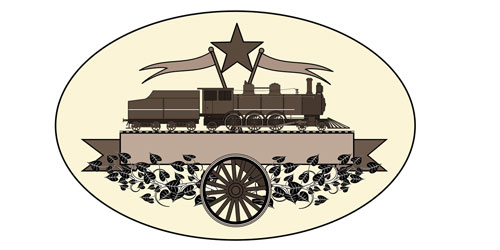《论语诠解英文版》——Chapter XI"先进" (Xianjin)
[11- 1] 子曰:“ 先进千礼乐,野人也; 后进千礼乐,君 子也。如用之, 则吾从先进。"
11.1 The Master said, "Those who studied rituals and music before becom ing officials were rustics. Those who became officials before they studied rituals and music were men of nobility. If I were to select talents, I would rather use one of the former."
[Reading] This section is about the distinction between men of nobility, common folks, and so-called "rustics," who are rural and unsophisticated people; this was a social hierarchy in the Zhou Dynasty. Confucius argued that in selecting talents for office, he would prefer those "who studied rituals and music before becoming officials" to those "who became officials before they studied rituals and music." This is because those who become officials before they have received training in rituals and music do not know how to serve as good officials and they are no better than a "parvenu" who has not yet developed appropriate manners, bearing, and civilities proper for a de cent official, whereas those so-called "rustics," unsophisticated though they may be, possess a good knowledge of proprieties because of decent training in such subjects. Most likely they would conduct themselves well as officials under the guidance of the rites of propriety they have studied.
[11- 2] 子曰: “从我千陈、蔡者,皆不及门也。"
11.2 The Master said, "Those who travelled and suffered together with me in the States of Chen and Cai were not with me any longer."
[Comment] " 陈 c h 的 " refers to the State of Chen during the Spring and Autumn period (770-476 BC). " 蔡 ca i" refers to the State of Cai though there have been different interpretations over" 及门 jf m的 " One view holds that it should be translated as "studying with Confucius." However, others have claimed that it should be interpreted as "learn in order to become min isterial officials." We favor the first one point of view and maintain that this refers simply to those who studied with the Master.
[Reading] In 489 BC, on their way from the State of Chen to the State of Cai, Confucius and his disciples were surrounded by local people and suf fered from poverty for more than seven days. Many of his disciples were too weak to continue the trip. But they refused to leave the Master and decided to suffer together with him. After Confucius returned to the State of Lu in 484 BC, however, these disciples began to depart from him. Yan Hui, his favorite disciple, died prematurely. Confucius missed his disciples so much that he lamented, "Those who travelled and suffered together with me in the States of Chen and Cai were not with me any longer." This exclamation reveals his strong feelings of nostalgia and sentimentality.
[11- 3] 德行: 颜渊、闵子赛、冉伯牛、仲弓。言语 : 宰我、子贡。政事:冉有、季路。文学:子游、子夏。
11.3 Of the disciples of the Master, Yan Yuan, Min Ziqian, Ran Boniu, and Zhonggong distinguished themselves for being virtuous, Zai Wo and Zigong for being diplomatic, Ran You and Jilu for being skillful about the way of governing a state, and Ziyou and Zixia for being versed in classics.
[Com ment] " 德行 de xf ng" indicates "morality, integrity," while "言语y6n yu" describes a "dialogue between host and guest." "政事zh却 g shl" refers to "the way of governing a state" and"文学 w的 xue" refers to "classics left by previous sage kings."
[Reading] It is commonly believed that Confucius had more than three thousand students, but only seventy-two of them truly comprehended and mastered what he taught. Of these exemplary followers, some were of ex ceptional ability and supreme morality, such as those mentioned in Confu cius'remarks: Men of the virtue - Yan Yuan, Min Ziqian, Ran Boniu, and Zhonggong; men of the diplomatic ability - Zai Wo and Zigong; men good at governance - Ran You and Jilu; and men versed in classics - Ziyou and Zixia. These four types of talents seem to con 它 spond well with what Con fucius advocated as the four virtues in Chapter VII: "One should set his will on the Way, hold onto the high-principled, rest firm in perfect virtue, and relax in the polite arts." (Section 6, Chapter VII).
[11- 4] 子曰: “回也 , 非助我者也, 千吾言无所不说。"
11.4 The Master said, "Hui is not the kind of person who can inspire me. Rather, he always takes delight in whatever I say."
[Comment] "说 yue" is used interchangeably with "悦 yue " to mean "fully convinced and delighted to be instructed."
[Reading] Of all the faithful disciples, Confucius viewed Yan Hui as his favorite. Although he was not the smartest among them (Just as the Master said, "Hui is not the kind of person who can inspire me."), Yan Hui was cer tainly the most virtuous and was highly extolled by the Master. The follow ing sections (11.7 - 11.11) record Confucius'eulogy for Yan Hui, as well as his profound mourning over Yan's premature death.
[11- 5] 子曰: “ 孝哉,闵 子赛! 人不间千其父母昆弟之言。"
11.5 The Master said, "Indeed Min Ziqian is filial! Because of his conduct of filial piety, no harsh comments were heard of his parents and brothers."
[Com ment] " 间 jia n" translates as "harsh comments, criticism."
[Reading] Of the concepts central to Confucian values is "filial piety," which Confucius refe 盯 ed to as one's love of and respect for one's parents, elders, and ancestors. One of the implications of "filial piety" is obedience, which one should display both in public and private spaces. Other expecta tions of "filial piety" are "ensuring male heirs, upholding fraternity among brothers, wisely advising one's parents," etc.
[11- 6] 南容三复白圭, 孔子以其兄之子妻之。
11.6 Nan Rong repeatedly recited the lines from the poem "White Scepter Stone." The Master gave him to wed his elder brother's daughter.
[Com ment] " 三复的n fu" means "to recite many times" and here "三 son" implies "quite many times." " 白 圭 b6i guT''is a rare jade, which is transpar ent and crystal clear. Here, it is used to refer to the four lines in a poem in the Classic of Odes.
[Reading] "南容 Nan Rong", also known as 喃 宫括 Nangong Kuo", who had a courtesy name of " 子荣 Zirong", was an important disciple of Confucius. He so impressed the Master with his integrity and outstanding character that the Master extolled him as "君子Junz i," a man of great vir tue. For example, in Chapter V, the Master said of Nan Rong, "When the state is well governed, he would be positioned in office. When the state is wrongly governed, he would be spared punishment." (Section 2, Chapter V) Here in this section, " 自 圭 b 6 i gui''as rare jade is used as a metaphor for the righteousness, rectitude, and honorableness that distinguish Nan Rong. It is quoted from a poem in "《大雅》d o ya" (Major Court Hymns) of the Classic of Odes. The original line reads: 自圭之站 ( ba i guT zhT d ia n) 尚可磨也 (s ha ng ke m6 性); 斯言之站 (s T y6n zhT dian), 不可为也(b u ke wei ye). Literarily, it means if there is a stain in a white scepter stone, it can still be removed by grinding; but if one speaks carelessly, an error thus caused would be hard to fix. That Nan Rong repeatedly recited the lines from the poem "White Scepter Stone" indicates to Confucius that he was a man of caution and that he knew how to conduct himself in accordance with the moral principles and the rites of propriety. So, Confucius married off his niece to Nan Rong.
[11- 7] 季康子问:" 弟子孰为好学?“孔子对曰:“ 有颜回者好学 , 不幸短命死矣,今也则亡。"
11.7 Ji Kangzi asked which of his disciples loved to learn most. The Master said, "Yan Hui did. Unfortunately, he died young. There has since been no one who loved to learn as much as he did."
[Comment] "亡w u" is used interchangeably with "无 w u" to mean "none."
[11- 8] 颜渊死 , 颜路请子之车以 为之桲。子曰: "才不才,亦各言其子也。鲤也死,有棺而无桲。吾不徒行以为之桲,以吾从大夫之后, 不可徒行也。"
11.8 When Yan Yuan died, his father Yan Lu begged the Master to sell his carriage to get an outer coffin for Yan Yuan. The Master said, "Talented or not, a son is a son. When my son Li died, his inner coffin did not have an outer shell. I could not sell my carriage to get him one, because as a former minister I was not supposed to walk on foot."
[Comment] "颜路 y6 n lu" was the father of " 颜回 y6 n huf," whose name was " 无 繇 wu y6 u." " 鲤 IT" was the son of Confucius, whose courtesy name was " 伯 鱼 b6 yu." Li died at the age of fifty, when Confucius was seventy years old.
[Reading] As discussed previously, Confucius extolled Yan Hui as his most outstanding disciple who was virtuous and fond of learning. When Yan Hui died, Confucius was so grieved that he was convinced heaven was ruining him. However, when Yan Hui's father begged him to sell his carriage to buy his son an outer coffin, Confucius refused with the excuse that as a former minister he must need to have his own carriage as a means of transportation, which he believed was prescribed by the rites of propriety, to which he had to cling rigidly.
[11- 9] 颜渊死。子 曰: "噫!天丧予!天丧予!”
11.9 When Yan Yuan died, the Master sighed heavily, "Heaven is ruining me! Heaven is destroying me!"
[Comment] '噫 yT'' is an exclamatory word, which can be translated as "alas, too bad." "天丧 tia n sang" implies that "Heaven will take my life."
[11- 10] 颜渊死, 子哭之恸。从者曰: “子恸矣。"曰: “有恸乎? 非夫人之为恸而谁为?”
11.10 When Yan Yuan died, the Master grieved him very sorrowfully. The disciples said, "Master, your grief is exceeding!" The Master said, "Is it exceeding? If I do not grieve him, who else should I grieve?
[Comment] "恸 to ng " translates as "excessive grief."
[11- 11] 颜渊死,门 人欲厚葬之,子 曰: “不可。“门人厚葬之。子曰: “回也 视予犹父也,予 不得视犹子也。非我也, 夫二三子也!”
11.11 When Yan Yuan died, the disciples planned an extravagant funeral for him. The Master said, "You may not do so," but the disciples still proceeded. The Master said, "Hui, you treated me as your father, yet I have been unable able to treat you as my son. But it is not my fault! It is that of your fellow students!"
[11- 12] 季路问事鬼神。子曰: “未能事人,焉能事鬼?"曰: "敢问死。"曰: “未知生,焉知死?”
11.12 Zilu asked how to serve the spirits of the dead. The Master said, "If you cannot yet serve men, how can you serve the spirits of the dead?" Zilu said again, "May I ask about death?" The Master answered, "If you do not know about life, how would you know about death?"
[Reading] In this interesting section, Confucius discussed two important issues: the present world and the otherworldly, and life and death. Confucius argued that one cannot honor the dead if one cannot first honor the living. Likewise, he also believed that if one does not know about life, one cannot know about death: "If you do not know about life, how would you know about death?" While Confucius neither proved nor disproved the existence of the otherworldly, he remained cautious when talking about the spirits of the dead. Obviously, Confucius focused more on the living and the present world. But that does not mean that he completely denied the otherworldly. For example, he believed that when sacrificing to the spirits, it is important that one feels as if they were present. He also said, "If I did not personally offer the sacrifice but someone did so on my behalf, I feel like not being present at the great ancestral worship ceremony." (Section 12, Chapter Ill) One may argue that Confucius was ambivalent or even skeptical on these critical issues. As a matter of fact, however, this kind of ambivalence or skepticism did not cause Confucius to renounce belief in the spiritual world and tum away from prayer and ritual, nor did it cause him to whole-hearted ly accept the otherworldly. He tended to emphasize the importance of keep ing a safe distance between these diametrically opposing issues by following the Middle Way. While coming across as someone who prayed to heaven, Confucius, however, thought about it more as an abstract concept of an over arching divine force rather than an actual God controlling the universe.
[11- 13] 闵子侍 侧,阎阎 如也; 子路, 行行如也;冉 有、子 贡, 侃侃如也。子乐。 “若由也,不得其死然。"
11.13 Waiting by the Master's side, Min Ziqian looked respectful and up right; Zilu (Zhong You) appeared resolute and courageous; Ran You and Zigong seemed to be gentle and delightful. The Master was pleased, but then he sighed, saying "People like Zhong You may not die a natural death."
[Comment] "阎阎yin yin" means "composed and self-possessed," while "行行 ha ng hang" indicates that one is "firm, determined." " 侃 侃 ka n kan" implies "happy and delighted," though "乐固 simply means "happy."
[Reading] As a mentor, Confucius was proud of many of his major disciples who distinguished themselves in various ways. One of his major disciples was Zilu (Zhong You), who was courageous and undaunted, but he was also reckless and thoughtless, which worried the Master, hence Confucius'con cern that "People like Zhong You may not die a natural death."
[11- 14] 鲁人为长府。闵子赛曰: "仍旧贯,如之何?何必改作?” 子曰: “夫人不言,言必有中。"
11.14 The State of Lu wanted to rebuild its main Treasury known as Chang fu. Min Ziqian said, "Why not it in its original style?" The Master said, "This man does not speak much. But when he does, he always hits the point."
[Comment] "仍 伦ng" means "in accordance with," while "IB jiu" connotes both "old, and original." "贯 g ua n" means "things, cases."
[Reading] Min Ziqian was one of the favorite disciples of Confucius. In the book "《二十四孝》伶r shf sl xiao)" (Twenty-Four Confucian Paragons of Filial Piety), which is believed to be compiled by Guo Jujing (郭居敬) of the Yuan Dynasty (1260-1368), Min is extolled as the fourth of the twenty four paragons of filial piety for his exceptional character and forgiving toler ance of his cruel stepmother. In this section, Confucius praised him for his sensible suggestion to reconstruct the Treasury, which would save the state a fortune.
[11- 15] 子曰: ”由之瑟,奚为千丘之门?"门人不敬子路。子曰: ”由也升堂矣,未入千室也。"
11.15 The Master said, "Why is Zhong You playing his lute at my door?" As a result his disciples began to lose their respect for Zilu (Zhong You). The Master continued, "Although You (Zhong You) has ascended to the main hall, he has not yet entered the inner chamber." (Confucius meant that Zhong You had done a good job in learning, but he had not yet reached a level of sophistication.)
[Com ment] "瑟范 ' refers to an ancient string instrument in the shape of “古琴 g u qf n" which was an ancient Chinese zither. " 升堂 s he ng tang" means "ascend the main hall," while "入千室 ru yu shl" connotes "to enter an inner chamber room." In the context of this passage, it implies that learn ing is like entering a house—first, one enters through a gate before ascending the main hall, and finally walking into an inner chamber room: meta phorically, from a beginning level to a level of sophistication.
[Reading] Interestingly enough, of all the major disciples of Confucius, Zilu (Zhong You) seemed to have received most criticism from the Master (See Section 13 in this Chapter). Here, as elsewhere, Confucius once again expressed his annoyance at Zilu for playing his zither at his door. However, when he realized that his remarks had impacted his other disciples'attitudes toward Zilu, Confucius quickly changed his tone and said in a more neutral manner that Zhong You had actually done a good job in learning, although he had not yet reached a level of sophistication. This is Confucius'unique way of encouraging his students while urging them to continue to improve themselves.
[11- 16] 子贡问:“ 师与商也孰贤?“子曰:“ 师也过,商也 不及。" 曰: ”然则师愈与?”子曰: “过犹不及。"
11.16 Zigong asked the Master, "Which of the two is most worthy: Rui Sunshi or Pu Shang?" The Master said, "While Shi goes beyond the norm, Shang does not come up to it." "So Shi is better?" asked Zigong. The Master replied, "Going beyond is just as undesirable as coming up short."
[Comment] "愈yu" translates as "better than, to exceed."
[Reading] Confucius'statement "过犹不及 g uo y6u bu jf" (Going be yond is as undesirable as coming up short) may be best illustrated in his thought on the Mean. 《中庸》Zhongyong(Doctrine of the Mean or the Middle Way), one of the four great Confucian books, has this to say: "The Master said,'He (Sage Emperor Shun) concealed what was bad in them and displayed what was good.("执其两端, 用其中千民" zh f qf liang duan, yong qf zhong yu mf n) He took hold of their two extremes, determined the Mean, and employed it in his government of the people.'" (James Legge's translation) Confucius believed that Emperor Shun governed well by the Middle Way and was therefore a sage. Now that "Shi goes beyond the norm whereas Shang does not come up to it," neither appears to be desirable and both should therefore be avoided.
[11- 17] 季氏富千周公, 而求也为之聚敛而附益之。子曰: “非吾徒也,小子鸣鼓而攻之,可也。"
11.17 Ji Kangzi was richer than the ministers of the Zhou Dynasty, yet Ran Qiu collected taxes and duties for him, thus making him richer. The Master said, "Ran Qiu is no longer my disciple. All of you, my students can beat the drum and attack him."
[Com ment] " 季氏 jl shl" refers to '季康子 jl kang zT" who was the prime minister in the State of Lu. There have been two interpretations of " 周公zhou gong." The first view holds that it refers to " 周 公 旦 Duke Dan of Zhou," while another view believes that it refers to those ministerial-level officials who served Duke of Zhou such as 凋 公黑肩zho u gong hei jian, and " 周公阅 zho u gong yue." "附益 f u yl" indicates "to increase." "徒 tu" means "pupils" and "小子 xia o zT" refers to "students."
[Reading] In Confucius'time, the State of Lu was under nominal control by a ruling ducal house. But the actual ruling was shared, or more accurately, scrambled by three big aristocratic families traditionally known as the Three Huan families, each of which had the title of viscount and held hereditary positions in the bureaucracy of Lu. Ji Kangzi, a posthumous title given to Jisun Fei, was at the time a chief minister. His family was already richer than any other ministers in the Zhou Dynasty, but Ran Qiu helped him create and collect various taxes and duties, thus making him richer. Although Ran Qiu was one of the leading disciples of Confucius, known for his talents in governance and statesmanship, and it was through his efforts that Confucius was invited back to his native State of Lu after his many years of exile, Con fucius just could not tolerate the abusive sociopolitical practices Ran Qiu was implementing for Ji Kangzi. He announced the severing of the relation ship between them as teacher and student and called on his other disciples to renounce Ran Qiu.
[11- 18] 柴也愚, 参也鲁, 师也辟, 由也啼。
11.18 Gao Chai is simple-minded, Zeng Shen is slow-witted. Zizhang is opinionated. Zhong You is audacious.
[Comment] " 柴 c h6 i" refers to " 高 柴 goo ch6i," whose courtesy name was "子恙 zT g oo ." " 参 s h的 " refers to "曾参 ze ng shen ," whose courtesy name was "子舆 zT yu." "鲁 l u" means "slow-witted," "辟 pl" translates as "opinionated, biased" and" 彦 yo n" indicates that someone is "audacious, reckless."
[Reading] As a teacher, Confucius was very observant of his students and constantly evaluated their character development so that he could offer in dividualized instruction to them. This kind of instructional philosophy was based on his notion of " 中庸 Zhongyong"(Doctrine of the Mean or the Mid dle Way) as seen in his statement "过犹不及 g uo y6u bu jf" (Going beyond is as undesirable as coming up short) in Section 16 of this chapter.
[11- 19] 子曰: “回也其庶乎,屡空。赐不受命,而货殖焉,亿则 屡中。"
11.19 The Master said, "Yan Hui has learned most of my knowledge, yet he was always in poverty. Duanmu Ci, however, has not yet attained my level of knowledge. Still, he has engaged himself in business activities and his judgments always turn out to be correct."
[Com ment] "庶s hu" translates as "not too far from." There have been two interpretations of "屡空 l u kong." One view holds that it describes one who is "always in poverty." The other view argues rather that "空 ko ng" implies "empty inside," suggesting that Yan Hui was so preoccupied with learning that he had almost emptied his self. We believe the first interpretation is the more logical choice in the context of this passage. "货殖 huo zhf" connotes "engage in business activities," while " 亿 yl" is used interchangeably with " 意yl" or "忆 yl" which means "to guess, speculate."
[Reading] This section records Confucius'frustration over the strange re ality in which business activities outweighed learning. Yan Hui, a leading disciple of Confucius, who was deemed by the Master as almost perfect in moral principles, remained impoverished all his life. On the other hand, Duanmu Ci, another disciple of Confucius who learned only shallowly from the Master, was successful in business engagements. To Confucius, this is indeed unfair!
[11- 20] 子张问善人之道。子曰: “不践迹,亦不入千室。"
11.20 Zizhang asked about the qualities of a good man. The Master said, "He does not follow the footsteps of others, though he is also unable to reach the supreme level of the sages."
[Comment] "践迹 jia n jl" means "follow the footsteps of the predecessors," while "入室 ru shl" is a phrase which appears frequently in the Analects. It seems this phrase was in vogue during Confucius'time, and was used as a metaphor to imply developmental stages of learning with sophistication.
[Reading] As Confucius saw it, a good man is one who does not follow in others'footsteps. This may be another way of saying that a good man fo- cuses on self-improvement. Mencius'idea of "独善其身 du shan qf shen" (self-improvement through seeking within oneself and conscientious self examination) seems to have been inspired by this. On the other hand, such a good man, according to Confucius, may not be able to achieve a high level of learning with sophistication.
[11- 21] 子曰: “论笃是与,君子者乎?色庄者乎?”
11.21 The Master said, "It is imperative to endorse a man for his sincere dis course. But it is also important to know if he is really a man of the virtuous or if he only pretends to be grave and sincere."
[Com ment] "笃 啦" means "truthful, loyal" while "色庄 se zhuang" con notes "pretending to be deferential."
[Reading] This section focuses on moral development. Confucius urged his disciples to be consistent in their speech, actions, and values. While it is important to "endorse a man for his sincere discourse," Confucius also warned that it is more important to examine whether one's words match their actions. In Section 10, Chapter V, for example, Confucius emphasized the importance of "听其言而观其行 fing qf y6n er guan qf xfng" (I listen to what a man says and observe what he would do accordingly). His advice is: Never judge a person by his appearance nor his words.
[11- 22] 子路问: “闻斯行诸?”子曰: “有父兄在,如之何其闻斯行之?”
冉有问: “闻斯行诸?”子曰: “闻斯行之。"
公西华曰: ”由也问闻斯行诸,子曰: '有父兄在';求也问闻斯行诸,子曰: '闻斯行之'。赤也惑,敢问。“子曰: “求也退, 故进之;由也兼人,故退之。"
11.22 Zilu asked if he should urgently put into practice a teaching he had heard. The Master said, "You have your father and elder brother to consult, there is no need for you to be so hasty in practicing what you just heard, is there?" Ran You asked the same question. The Master said, "Put into practice what you heard right away." Gongxi Hua asked the Master, "When Zhong You asked whether he should carry into practice what he heard, you said he has his father and elder broth er to consult and he does not need to practice it promptly. But when Ran Qiu asked the same question, you gave him a different answer. I was confused by this and would venture to ask why this is so?" The Master said, "Qiu is not a resolute person, so I urged him to act. Zhong You is an audacious person, so I held him back."
[Comment] "闻斯行诸 w的 s1xfng zhO" translates as "When you hear it, put into practice immediately." '兼 人 jia n r的 " connotes "reckless" and "退tul" means "to restrain, to hold back."
[Reading] As discussed in Sections 13, 16, and 18 of this chapter, Confucius was closely observant of his students with regard to their character develop ment so as to offer individualized instruction to them. Behind this kind of instructional philosophy was his notion of "过犹不及 g uo y6u bu jf" (Going beyond is as undesirable as coming up short). (Section 16 of this chapter)
[11- 23] 子畏千匡, 颜渊后。子曰: “吾以女为死矣!”曰: “子在,回何敢死?”
11.23 A long while after the Master was detained in confinement by the people of Kuang, Yan Yuan arrived. The Master said, "I thought you were dead." Yan Yuan replied, "While you are alive, how dare I die?"
[Com ment] " 畏 w 创 ' indicates that one is "retained or detained in confine ment." " 子畏千匡 zT wei yu kuang" connotes that "Confucius was once held in confinement in an area called Kuang."
[11- 24] 季子然问: "仲由、冉求,可谓大臣与?“子曰: “吾以子为异之问,曾由与求之间。所谓大臣者,以道事君,不可则止。今 由与求也,可谓具臣矣。"曰: ”然则从之者与?”子曰: "弑父与君, 亦不从也。"
11.24 Ji Ziran asked if Zhong You and Ran Qiu could be regarded as great ministers. The Master said, "I thought you would raise a significant ques tion, but you only asked about Zhong You and Ran Qiu. A so-called great minister is one who serves his prince with the righteous. If he cannot do it, he should quit. As such, Zhong You and Ran Qiu may, at their best, be called 'makeshift ministers.'"Ji Ziran asked again, "Then, they will do what Ji Shi asks them to do?" The Master said, "If they were ordered to enact parricide or regicide, they will not do so."
[Com ment] " 季子然 jl zT ran" was a minister serving the State of Lu. " 止 zhT" means "to stop." In the context of this passage, it implies "quit and not to become an official." "具臣 ju c h的 " connotes "an alternative ministerial official." In ancient times, when a junior official killed a senior official, it was called "弑 s hl."
[Reading] In this section, Confucius discussed the moral principle of " 以道事君 yT dao shl jun" (serving one's prince with the righteous). He urged Zhong You and Ran Qiu, the two of his major disciples, to persuade Ji Shi not to enact parricide or regicide. If he refused, then they should both resign. In doing so, Confucius argued that both princes and ministers should per form the righteous and observe the rules of propriety.
[11- 25] 子路使子恙为费宰。子曰: "贼夫人之子。“子路曰: “有民人焉,有社稷焉,何必读书,然后为学。“子曰: “是故恶夫佞者。"
11.25 Zilu had Zigao appointed Chief of Feiyi. The Master said, "He has not yet completed his studies. To appoint him to this position is to ruin him." Zilu said, "In Feiyi, there are common people and officers to manage with learning. Why should one complete a curriculum in order to have learned?" The Master said, "That is why I hate those sophists."
[Comment] "子恙 zT goo" refers to "高柴 goo ch6i," while "费宰 伶i zai" refers to a local official in the place of "费邑 伶i yl." "贼 z令" means "mislead, to wrongly guide." "民人 mf n r的 " describes "common folk." "社稷 s he jl" refers to a place where the God of Earth and God of Grain are worshipped. “ 恶 wu" means "to dislike," while " 佞 nlng" refers to "a sophist, a captious reasoner."
[11- 26] 子路、曾暂、冉有、公西华侍坐。
子曰: “以 吾一日长乎 尔, 毋吾以也。居则曰: '不吾知也!' 如或知尔,则何以哉?”
子路率尔而对曰: “千乘之国,摄乎大国之间,加之以师旅,因 之以饥懂。由也为之, 比及三年, 可使有勇, 且知方也。“夫子晒之。
“求!尔何如?”对曰: “方六七十,如五六十,求也为之,比及三年, 可使足民。如其礼乐 ,以 俟君子。"
“赤!尔何如?”对曰: “非曰能之,愿学焉。宗庙之事,如会同, 端章甫,愿为小相焉。"
“点!尔何如?"鼓瑟希,捚尔,舍瑟而作,对曰: “异乎三子者之撰。“子曰:“何伤乎?亦各言其志也。"曰:“莫春者,春服既成, 冠者五六人,童子六七人,浴乎沂,风乎舞穹,咏而归。"
夫子喟然叹曰: “吾与点也!”
三子者出, 曾暂后。曾暂曰: “ 夫三子者之言何如?” 子曰: "亦各言其志也已矣。"曰:“夫子何晒由也?”曰:“为国以礼,其言不让, 是故晒之。” “唯求则非邦也与?” “安见方六七十,如五六十,而非邦也者?” “唯赤则非邦也与?” “宗庙会同,非诸侯而何?赤也为之小,孰能为之大?”
11.26 Zilu, Zeng Xi, Ran You, and Gongxi Hua were sitting by the Master. "Although I am older than you by a few years," said the Master, "you should feel free to speak whatever you have to say. Now and then you would com plain,'We are not recognized.'Well, suppose you are now recognized by people, what would you like to do?" Zilu said hastily, "I would like to be entrusted with the governing of a state of ten thousand chariots. Surrounded and therefore often harassed by larger states, this small state also suffers from famine. In three years I will not only make its people bold and brave, but enable them to know the rites of propri ety." Hearing this, the Master sneered. "Ran Qiu, what would you do?" asked the Master. Ran Qiu answered, "If I am entrusted to the management of a state of sixty or seventy square li, or perhaps one of fifty or sixty square li, in three years, I will ensure that the people have abundance for themselves. As for the instruction of the rites of propriety and music, I would wait for the rise of a noble man of true virtue." The Master turned to Gongxi Chi (Gongxi Hua), asking "What about you?" Gongxi Chi replied, "I will not claim that I am capable of these things, but I am willing to learn about them. I would like, donned in the ceremonial robe and cap, to function as a junior officer, assisting in conducting ritual cer emonies in the ancestral temple, or helping with the audiences of the princes with the sovereign." "Dian, what do you want to do?" asked the Master. Waiting until his playing lute twangled, Dian set the instrument aside and rose. "My wishes are differ ent from the other three." The Master said, "So what? Just tell me what you would like to do." Zeng Xi (Dian) then said, "I would like, in late spring, to don myself in spring clothes and invite five or six gentlemen, and six or seven young boys to bathe in Yi River, to enjoy the breeze on the altars for rainmaking ritual, and then to return home merrily singing." The Master sighed, saying, "I love Zeng Xi's idea." After Zilu, Ran You and Gongxi Hua left, Zeng Xi, who remained behind, asked the Master, "What do you think of their words?" The Master said, "They simply spoke out their wishes." Zeng Xi asked further, "Master, why did you sneer at Zhong You?" The Master said, "To govern a state requires the rites of propriety, but he sounded haughty. Therefore I sneered at him." Zeng Xi again asked, "Ran Qiu was not discussing the management of a state, was he?" The Master said, "Have you ever seen a territory of sixty or seventy square li, which was not a state?" "Did Gongxi Chi not talk about the governing of a state?" continued Zeng Xi. The Master said, "Services at ancestral temples and audiences with the sovereign are dealt with by the princes. If people like Chi only serve as a junior assistant in these services, who else could be a senior one?"
[Com ment] "曾暂 ze ng xi''was a disciple of Confucius. A native of Lu, his name was "点 d ia n ," and he held a courtesy name of "子暂 zT xT." He was the father of "曾参 ze ng shen .""侍坐s hl zuo" translates as "serving the respected elderly by sitting next to them" and "居 ju" describes "the quotid ian, daily." Its meaning is similar to the phrase "平居 pf ng ju," which was popular in the Tang Dynasty (618-907 AD) and Song Dynasty (960-1279 AD). " 方 fa ng" means "reason" and "晒 s h的 " translates as "to sneer." "端duan" and "章甫 zha ng fu" are both names of ancient ceremonial garments, the first describing a robe and the latter a cap. "作 zuo " means "to stand up," while "莫春 m u chOn" is the same as "暮春 mu chOn," both of which refer to late spring. "冠者 g ua n zhe" indicates "adults," while '萼yu" refers to a kind of rainmaking ritual in which people dance to invoke weather.
[Reading] While the ideas of Zilu, Ran Qiu, and Gongxi Hua were interest ing, and each of them tried to put into practice what they believed they had learned from the Master, Confucius was not impressed with them, as they failed to address the fundamental issue of good governance. Confucius ap preciated Zeng Dian's idea because he thought, simple and casual though it may sound, it pointed to the essence of statesmanship, that is, to govern by benevolence, moral principle, and the rites of propriety.












